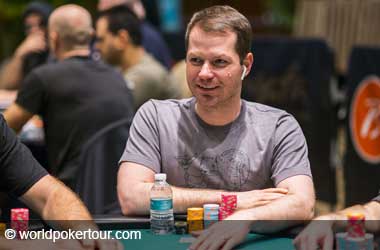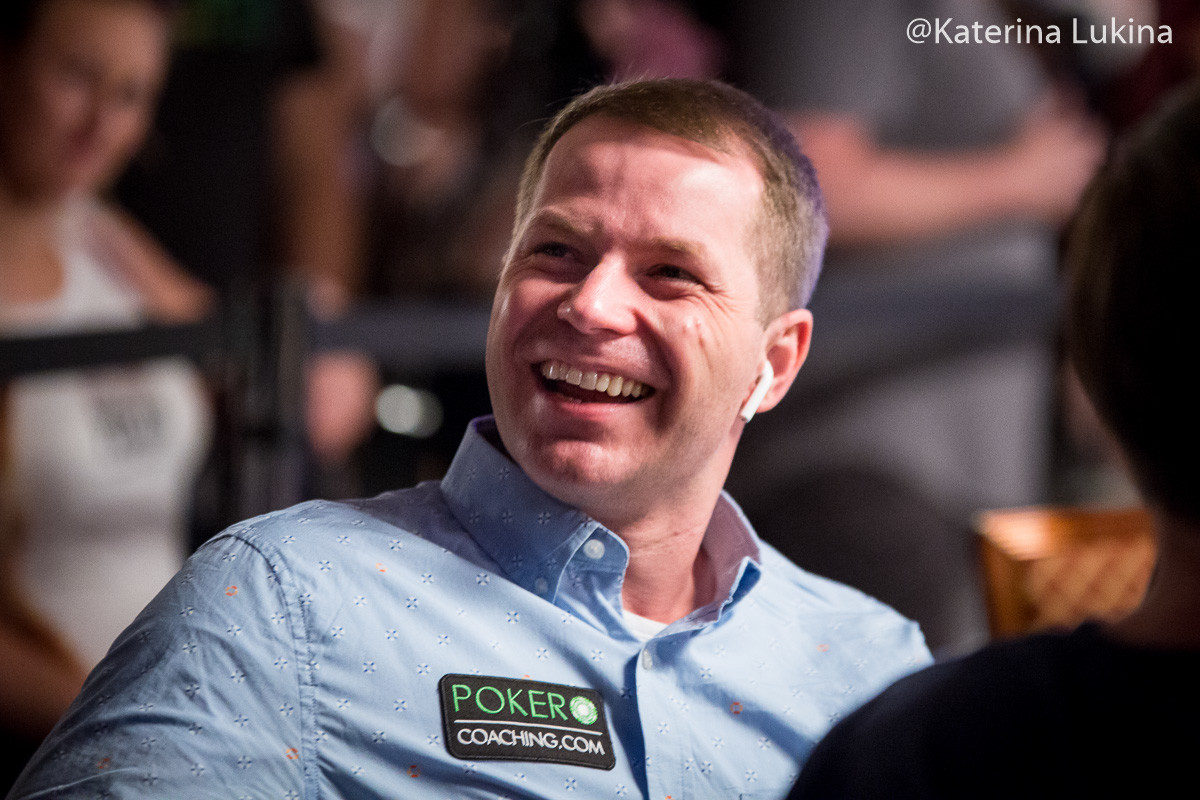Free Book: Jonathan Little's new book – 'Strategies for Beating Small Stakes Poker Tournaments' will help you with short handed play and other aspects of Poker Tournaments. You can get a PDF copy free by clicking here. Jonathan Little, one of the most respected online and live poker professionals in the world today, has apparently been banned from playing on the popular online poker site America's Cardroom. In this BRAND-NEW 180-lessons Masterclass, Jonathan Little teaches you everything you need to know to play every stage of a poker tournament optimally, maximally exploit your opponents, and maximize your tournament equity. 30+ Hours 180 Lessons. View Jonathan Little's business profile as Account Manager at Koito Europe Limited. Find Jonathan's email address, phone number, work history, and more.
Against the weakest, most straightforward players, do not be afraid to bluff! When they do not have an effective nut hand, they will usually fold if you apply enough pressure.
This was evidenced in a hand played by one of my students in a $1-$3 no-limit hold'em cash game. Everyone was sitting on an effective stack of $300 at a seven-handed table when the player in the hijack opened for $10. It folded around to us in the big blind and we called holding the .
We then checked the flop with the intention of folding if our opponent continues because we have nothing. However, the hijack checked behind and we got a free card, which came the to give us an up-and-down straight draw.
My student knew from a prior hand that the player in the hijack didn't bet an obvious value-bet hand. As such, we pegged the straightforward player as a bit weaker and tighter. So, what can we deduce from that here? Well, he probably has nothing, but in the worst-case scenario has a bad queen or jack, maybe or . The question is, will a hand like that fold to enough aggression?
'If you think you can get your opponent to fold a queen or jack by the river, then we should be betting the turn normally and blasting the river big.'
If they have a marginal made hand, which there's a good chance they do, they're not going to fold to a turn bet. Does that mean we should not bluff the turn? Not necessarily, not if we're willing to ask how they'd play it on the river. If you think you can get your opponent to fold a queen or jack by the river, then we should be betting the turn normally and blasting the river big.
If you think your opponent will always call the turn and river with a queen or jacks, we should just check. If our opponent will let us check it down when they hold a queen or jack, then great. If they blast the turn, we can stick around as we have a lot of applied odds. We can go a lot of ways depending on our opponent's tendencies.
Given what we know about our opponent here, namely that he has played rather coy in the past, I think a turn bet followed by a river blast is the way to go. My student does bet $14 and got called, which brought about the on the river.
Now, you might be thinking since we paired the seven we have showdown value and should be looking to go check-check, but think about the range our opponent has. He probably has a queen, jack, or something like pocket nines. We lose to the vast majority of our opponent's range. So, even though we have a made hand, a pair of sevens, we still lose to most everything our opponent could hold.
The seven actually doesn't change much, we should still follow through with our plan to bluff. If anything, the seven completed some draws we were representing. I am going to bet, and I am going to bet a big size to get a queen or jack to fold. A lot of players will bet $30, but that's not going to be enough. They won't think twice about calling with a queen, but they might if you bet something like $85.
My student ends up betting $65. I think slightly bigger is probably better, but I'm ok with this bet size. You don't want to go much smaller.


The hand played out to perfection as the player in the hijack folded the better hand by laying down the . This is obviously nitty and the opponent should not be folding queen-ten, but for our hero, it's ok to make plays that take advantage of mistakes an opponent may make, that's how you make money in poker.
This is not a hand from a tough, high-stakes cash game. Here, we're not concerned about balance. We're betting big on the river as a bluff.
For a more thorough breakdown of this hand, check out my thoughts in the following video:
Jonathan Little is a professional poker player and author with over $7,000,000 in live tournament earnings. He writes a weekly educational blog and hosts a podcast at JonathanLittlePoker.com. Sign up to learn poker from Jonathan for free at PokerCoaching.com. You can follow him on Twitter @JonathanLittle.
Tags
Jonathan LittlePoker StrategyPokerNews StrategyTournament StrategyCash PokerRelated Players
Jonathan Little
Jonathan Little, one of the most respected online and live poker professionals in the world today, has apparently been banned from playing on the popular online poker site America's Cardroom. Depending on who you believe, the ban is either because Little exercised his 'freedom of speech' rights to discuss playing on America's Cardroom or, if you believe America's Cardroom and the Chief Executive Officer of the network that operates them, they are exercising their right to refuse customers service. Either way, it is an ugly look for the poker community.
It All Began with a Tweet…

In a series of Tweets on Wednesday night, Little went into a bit of depth as to why he had suddenly been kicked off the popular online poker site. 'I got banned from ACR for making my students aware of the potential risks of playing on an unlicensed/unregulated site,' the popular poker pro, coach and author stated to his followers. He would go on to say that his job as a coach is to help his students to make money and to 'not get scammed out of their money from poker and I will continue doing my best to help my students.'
This didn't sit well with the Chief Executive Officer of the Winning Poker Network and the host for America's Cardroom, Phillip Nagy. He fired his own missives off from his Twitter account, writing 'It's one thing if you're going to treat WPN like some side chick. But I'll be damned if I'm going to give you the privilege of getting to f**k me on the daily if you're going to punch me in the head while doing it.' Apparently, this was the point where Little was banned from America's Cardroom.
The staff at America's Cardroom was a bit more diplomatic than Nagy had been. 'While we wouldn't have put it in those words, given (Little's) repeated statements about us as a business, we're sure we'll both be happier in the long run to part ways,' their Twitter team wrote. 'We reserve the right in our T's and C's to refuse business at our discretion.' Nagy put one more log on the fire, stating it was a pure business move and nothing personal.
An Argument with a Gray Area

The hand played out to perfection as the player in the hijack folded the better hand by laying down the . This is obviously nitty and the opponent should not be folding queen-ten, but for our hero, it's ok to make plays that take advantage of mistakes an opponent may make, that's how you make money in poker.
This is not a hand from a tough, high-stakes cash game. Here, we're not concerned about balance. We're betting big on the river as a bluff.
For a more thorough breakdown of this hand, check out my thoughts in the following video:
Jonathan Little is a professional poker player and author with over $7,000,000 in live tournament earnings. He writes a weekly educational blog and hosts a podcast at JonathanLittlePoker.com. Sign up to learn poker from Jonathan for free at PokerCoaching.com. You can follow him on Twitter @JonathanLittle.
Tags
Jonathan LittlePoker StrategyPokerNews StrategyTournament StrategyCash PokerRelated Players
Jonathan Little
Jonathan Little, one of the most respected online and live poker professionals in the world today, has apparently been banned from playing on the popular online poker site America's Cardroom. Depending on who you believe, the ban is either because Little exercised his 'freedom of speech' rights to discuss playing on America's Cardroom or, if you believe America's Cardroom and the Chief Executive Officer of the network that operates them, they are exercising their right to refuse customers service. Either way, it is an ugly look for the poker community.
It All Began with a Tweet…
In a series of Tweets on Wednesday night, Little went into a bit of depth as to why he had suddenly been kicked off the popular online poker site. 'I got banned from ACR for making my students aware of the potential risks of playing on an unlicensed/unregulated site,' the popular poker pro, coach and author stated to his followers. He would go on to say that his job as a coach is to help his students to make money and to 'not get scammed out of their money from poker and I will continue doing my best to help my students.'
This didn't sit well with the Chief Executive Officer of the Winning Poker Network and the host for America's Cardroom, Phillip Nagy. He fired his own missives off from his Twitter account, writing 'It's one thing if you're going to treat WPN like some side chick. But I'll be damned if I'm going to give you the privilege of getting to f**k me on the daily if you're going to punch me in the head while doing it.' Apparently, this was the point where Little was banned from America's Cardroom.
The staff at America's Cardroom was a bit more diplomatic than Nagy had been. 'While we wouldn't have put it in those words, given (Little's) repeated statements about us as a business, we're sure we'll both be happier in the long run to part ways,' their Twitter team wrote. 'We reserve the right in our T's and C's to refuse business at our discretion.' Nagy put one more log on the fire, stating it was a pure business move and nothing personal.
An Argument with a Gray Area
The major point of this argument – the legitimacy of unregulated online poker sites – is a legitimate argument. And the two sides in this fight have strong evidence that they are correct.
On Little's side is the wealth of evidence by what previous online poker companies have done. The online poker industry is not that far removed from 2011, when 'Black Friday' stunned the community. On that fateful April 15 less than ten years ago, the three major online poker sites in the U. S., PokerStars, Full Tilt Poker and the networked combo of Absolute Poker and UB.com (operating as the CEREUS Network), were shut down by the U. S. Department of Justice on a variety of fraud charges. Full Tilt Poker, Absolute and UB.com all shut down as a result of the closure, with Full Tilt customers only getting paid back once PokerStars bought the company and Absolute and UB customers never seeing a dime of their money.
Jonathan Little Poker Books Pdf
This has carried on with other non-regulated sites in the online poker world. Of particular note was Lock Poker's shutdown in 2015, attributed to overspending by the management. In that situation, it is estimated that upwards of $10-$15 million was lost by players who had a bankroll on the site.
Jonathan Little Poker
Nagy/WPN and America's Cardroom do have their argument too. There is absolutely nothing that has ever said that offering online poker is against the law in the U. S., despite the protestations of some. However, the companies that offer such services aren't beholden to offer their product to everyone. It is essentially the 'We have the right to refuse service to anyone' sign that you see in many 'brick and mortar' businesses. There's also the fact that, since its inception, WPN and America's Cardroom have been solid actors in the online world.
Jonathan Little Charts
The one thing that is known is that spats like this don't do anything to help the online gaming industry or the poker world in general. With hope, the two sides can 'agree to disagree' on the situation or, at the minimum, take the vitriol out of the public arena.

